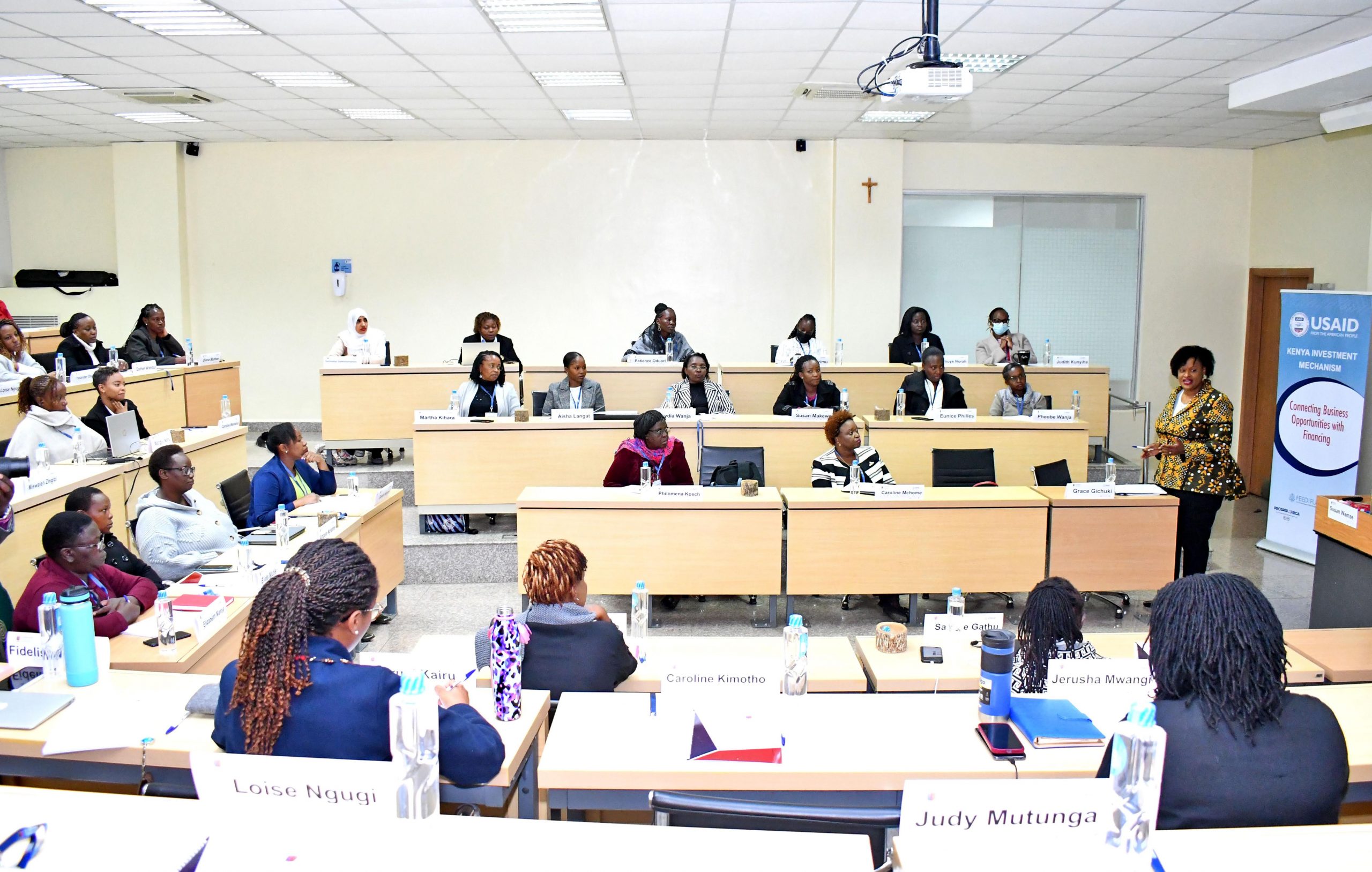Women constitute about 50 per cent of the agricultural workforce and also own one third of small and medium enterprises (SMEs) in Africa. Undeniably, women are the backbone of Africa’s agricultural sector. They are players along the entire agricultural value chain, be it as farmers, livestock breeders, workers, traders, entrepreneurs or consumers. They dominate as primary processors post-harvest, as traders with bustling market stalls, as owners of fast food restaurants and as manufacturers of packaged ready-to-eat food products.
However, despite this dynamism, female-led agribusinesses remain small, informal and fragmented. They struggle to sustain and scale-up their agribusinesses into systematic profitable enterprises. Amidst the current challenging business environment brought about by the global economic slowdown, women-led enterprises must also grapple with various gender-specific constraints that inhibit their expansion into more lucrative market segments.
Between 18th and 22nd July 2022, Strathmore University Business School trained 50 women entrepreneurs running agribusiness value addition businesses in Kenya. This capacity building Programme aimed to equip the women entrepreneurs with skills and know-how for agricultural value addition. On completion of this Programme, the women will learn how to enhance the production of quality goods, how to create sustainable businesses as well as get linkage to business advisory service providers and investors.
During the class sessions, the participants engaged in discussions on the specific manufacturing and business challenges that hinder the growth of their enterprises.
While the influence of women on the continent’s growing agribusiness sector is indisputable, more solutions are needed to address the gender-specific challenges they face in order to boost their participation in driving the continent’s economic growth.
This article provides an insight into the various challenges women-led enterprises face and the solutions that could help cushion their small and medium enterprises (SMEs) in order to successfully break through the glass ceiling in Africa’s agribusiness industry.
Access to Finance
The greatest challenge that women entrepreneurs face in Kenya is access to finance because of collateral requirements. Collateral is typically needed for a loan and smaller businesses like SMEs may not be able to provide such assets due to their size. Additionally, access to agricultural finance is lower for women compared to men, especially due to credit discrimination issues.
Unfortunately, most female entrepreneurs restrict themselves by looking at the traditional banking method of acquiring a loan. Loans tend to be limited in amount, have no grace period, are short term in design and have high interest rates. It is crucial and advisable that women entrepreneurs start looking at and educating themselves on alternative funding options outside of the traditional bank loans.
If you have been turned down for a loan in the past, have poor credit or are unsure of how much funding you need for your business, you can consider alternative forms of funding such as:
- Grants- A grant is financial assistance awarded by the federal state or local government to an applicant who shows a promising chance of success. They are much more competitive to receive because it is money that is awarded and not borrowed. While they are difficult to acquire and oftentimes require specific circumstances, grants are incredibly valuable.
- Venture Capital- This type of financing involves providing capital to a young business in exchange for an ownership share of the business. Venture capital firms usually don’t want to participate in the initial financing of a business but instead prefer to invest in those firms that have received significant equity investments from the founders and are already profitable. They also prefer businesses that have a competitive advantage or a strong value proposition in the form of a patent, a proven demand for the product or a very special idea.
- Equity financing- This type of financing involves exchanging a portion of the ownership of the business for a financial investment in the business. The ownership stake resulting from an equity investment allows the investor to share in the company profits. Equity involves a permanent investment in a company and is not repaid by the company at a later date.
- Business Advisory Service Providers (BASPs)- Working with BASPs to get help in accessing finance or investment is a good option when you need to take an abrupt loan. They help your small and medium enterprise (SME) receive the right kind of financing package by developing a pitch deck for you and writing a proposal to present to potential investors. The success rate of working with BASPs in getting funding is high because they have good relationships with financial institutions.
- Fintech- This is a recent emergence of financial technology lenders who typically provide smaller loans, credit options, lower barriers to entry, and function solely online.
Value-Added Agriculture
Despite farmers putting a lot of effort in their crops or livestock, they tend to get the least out of it when it comes to the market and it’s only through value addition that this trend can be reversed.
Value-added agriculture generally focuses on production or manufacturing processes, marketing or services that increase the value of primary agricultural produce by increasing the appeal to the consumer and the consumer’s willingness to pay a premium over similar but undifferentiated products. It is a worthwhile investment that can generate higher returns, allow penetration of a new potentially high-value market, create brand identity, develop brand loyalty and extend the production season. The more value you provide, the more returns you can draw out from the market.
Digitization of the Agricultural Supply (Value) Chain
In the agricultural value chain, the range of steps and related stakeholders needed for an agricultural product to move from the farm to the final consumer are often quite complex. Digitization involves implementing advanced digital products and services into different aspects of the supply chain in order to streamline operations, increase visibility and improve management.
The key benefit for buyers of agricultural products to digitize value chains is to lower the cost of withdrawing, transporting and securing cash and distributing payments- either to farmers directly or through cooperatives or associations. Digitization also increases trust from farmers when transactions are completed rapidly. It prevents the anxiety or worry created when farmers wait to receive their funds and consequently reduces the temptation for them to sell crops too early for a lower price just to get cash in hand. Additionally, having historic electronic data on farmers could help more progressive companies make better decisions on who to lend capital to and eventually provides access to digital credit.
Record Keeping
Good and accurate record keeping is vital for your small and medium enterprise (SME). It is a process that you can’t ignore as an entrepreneur. It should be the base-line of all your operations. It is essential for better planning and forecasting, tracking income and expenditure and the overall management of your enterprise. Additionally, lenders, government agencies and insurance companies often require detailed records of the business before giving out any loans, funding or making any kind of investment.
Article by Michelle Nthemba
Would you like to share an article? Write to us at sbscommunication@strathmore.edu
Share This Story, Choose Your Platform!
Your journey to business excellence starts here. Subscribe today and be at the forefront of innovation and leadership.











